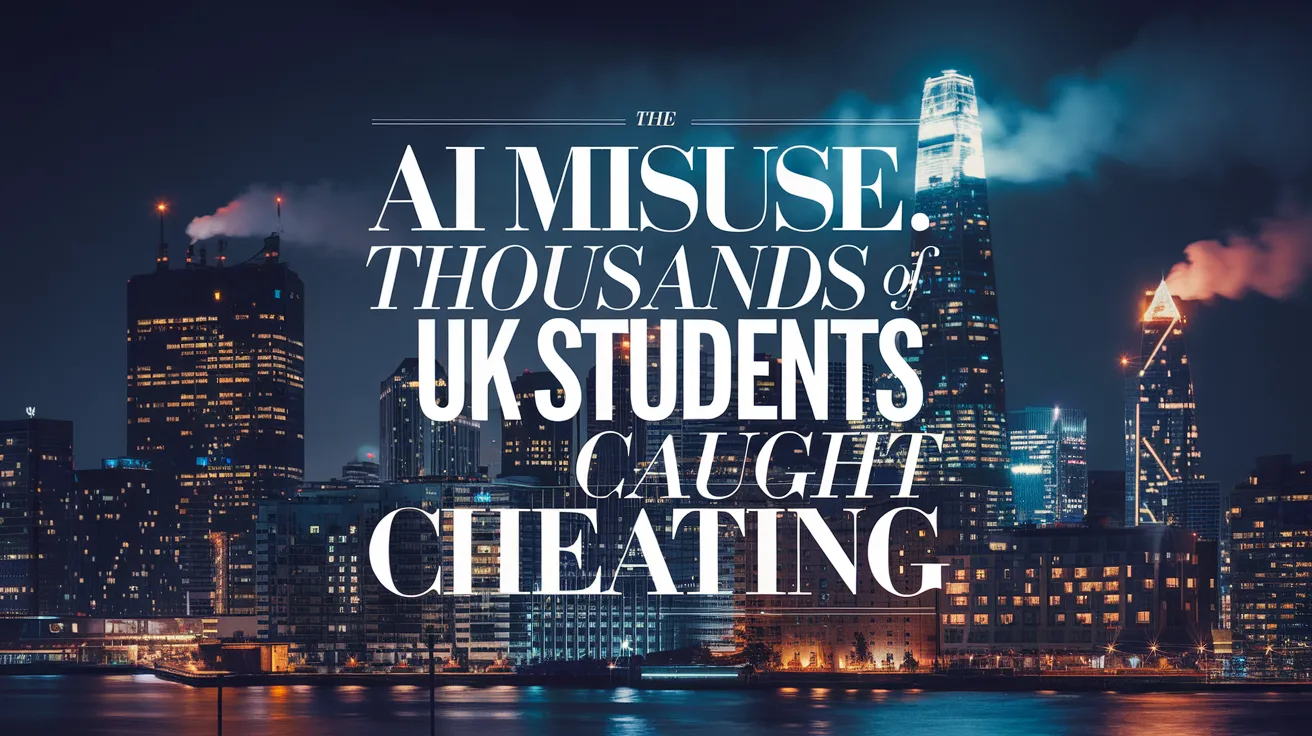AI Misuse: Thousands of UK Students Caught Cheating

A recent investigation by the Guardian has uncovered a troubling trend in UK universities, revealing that thousands of students have been caught using artificial intelligence tools like ChatGPT to cheat. The survey indicated almost 7,000 confirmed cases of academic misconduct linked to AI for the academic year 2023-24, equating to about 5.1 instances of cheating per 1,000 students. This figure marks a dramatic increase from 1.6 cases per 1,000 during the previous year.
Experts predict that this number could rise further to approximately 7.5 proven cases per 1,000 students in the current academic year. However, these recorded instances likely represent only a fraction of the true scale of the issue, with many cases going undetected.
These findings highlight a significant challenge for universities as they adapt their assessment methods in response to increasingly sophisticated AI technologies. The survey indicated a notable decline in traditional plagiarism, which fell from 19 instances per 1,000 students in 2019-20 to 15.2 in 2023-24, suggesting that as AI tools have become more accessible, student cheating practices have evolved.
Out of the 155 universities contacted under the Freedom of Information Act, 131 provided data regarding academic misconduct. Surprisingly, more than 27% of these universities did not even categorize AI misuse separately, indicating that institutions are still grappling with the ramifications of AI in academic settings.
Further complicating matters, a survey from the Higher Education Policy Institute found that 88% of students had employed AI for their assessments. A separate study from the University of Reading demonstrated that students could submit AI-generated materials undetected 94% of the time, showcasing the scale of the challenge.
Dr. Peter Scarfe, an associate professor at the University of Reading, commented on the adaptability required by the education sector in light of AI’s impact on academic integrity. He noted, “AI detection is very unlike plagiarism, where you can confirm the copied text… AI usage is much harder to prove, making these cases difficult to manage without creating false accusations against students.”
Despite the ethical concerns, students finding ways to effectively use AI in their academic work appear to be common. One student, Harvey, indicated that he used AI to generate ideas for his assignments rather than outright copying material. Similarly, Amelia shared that AI had been particularly helpful for students with learning difficulties, enhancing their ability to structure their essays and reinforce their own points.
This trend raises important questions about how universities should respond. Dr. Thomas Lancaster from Imperial College suggests that if employed correctly, AI can conceivably enhance learning rather than detract from it. He advocates for a continued focus on the relevance of education and the need to engage with students during assessment design to foster understanding rather than rote learning.
A spokesperson from the UK government acknowledged the importance of addressing AI’s integration into educational practices, announcing investments of more than £187 million towards national skills programs and plans for incorporating AI into teaching. They emphasized the potential of generative AI to transform education while recognizing the need for careful consideration of its implications.
As AI technologies continue to evolve, universities will need to be proactive in reshaping assessment practices and support systems to ensure academic integrity while embracing the educational benefits of AI.